The 2020 Annual Meeting of ICIM Academic Committee Was Successfully Held
The 2020 Annual Meeting of ICIM Academic Committee was held on the evening of November 26th. Representatives of world famous organizations, such as ASME and VDMA, and renowned scholars from US, Germany, France, Italy, Japan, Netherlands, Canada, Singapore and China attended the meeting and shared their valuable views on intelligent manufacturing. The meeting was hosted by Dr. Pei Huang, Deputy Secretary General of ICIM.
Youhua Wu, Secretary Genera of ICIM, warmly welcomed all everyone attending the meeting and introduced ICIM and ICIM Academic Committee.

Youhua Wu, Secretary Genera of ICIM,givingopening remarks
After the opening speech of Secretary General Wu, Dr. Pei Huang made a report on the progresses ICIM has made this year. First of all, in terms of research of intelligent manufacturing, ICIM organized the appraisal of 2020 international top ten scientific and technological progress in the field of intelligent manufacturing, released 2020 Intelligent Manufacturing Report, and developed a new business model and new models of manufacturing technology roadmap for 2035 as well as key technologies list of intelligent manufacturing for 2035. Secondly, ICIM launched International Intelligent Manufacturing Online Expo in September, which has attracted more than 500 international intelligent manufacturing vendors. Thirdly, ICIM successfully hosted two important symposiums about the impact of Covid-19 and over 180 online training webinars. And a series of intelligent manufacturing events were held around China, including forums, training seminars, and investigation tours to the leading manufacturing companies. In addition, ICIM has released an intelligent manufacturing e-learning platform as well as an online maturity model evaluation platform.
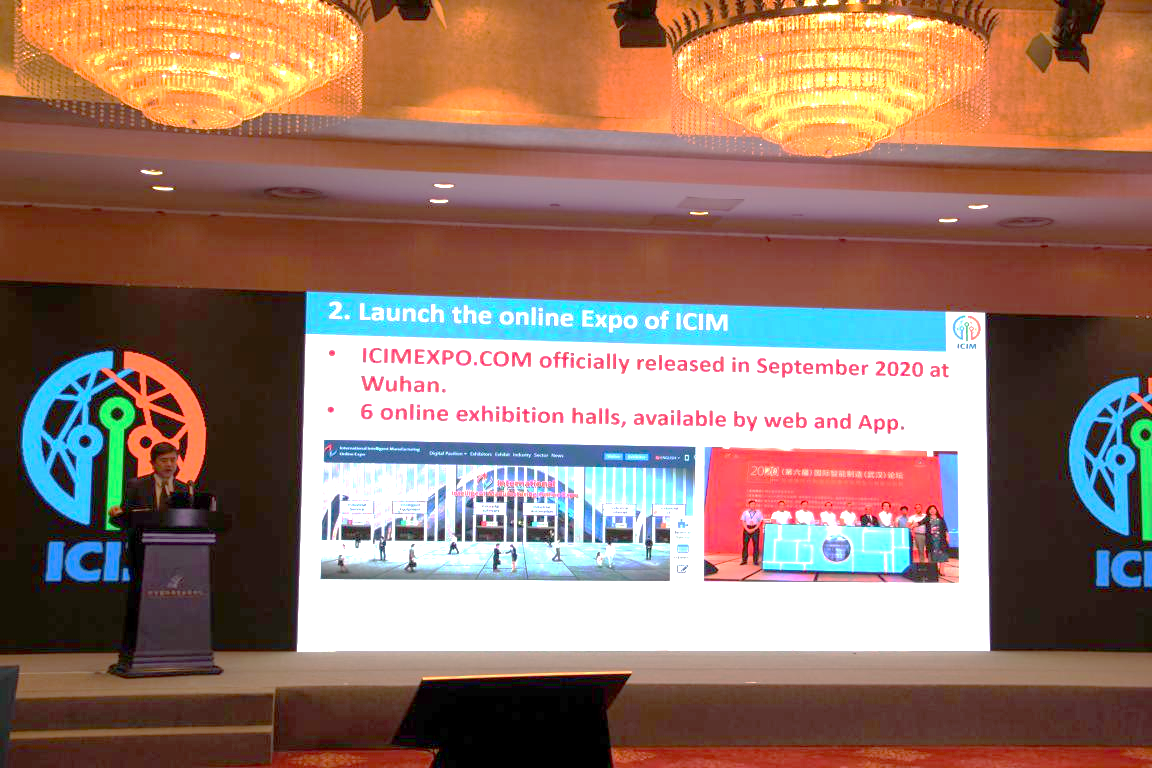
Dr. Pei Huang, Deputy Secretary General of ICIM, introducing the works done by ICIM this year
Weiming Shen, Professor of Huazhong University of Science and Technology, Fellowof Engineering Institute of Canada, gave a brief introduction of the 2020 Intelligent Manufacturing Report. He pointed out that this reportisthe work of 20 authors from around the world. It’s a collection of the latest research results in the field of intelligent manufacturing. With a total of 19 papers, this report serves as a one-stop shop where people can see the whole picture of the development of intelligent manufacturing around the globe.
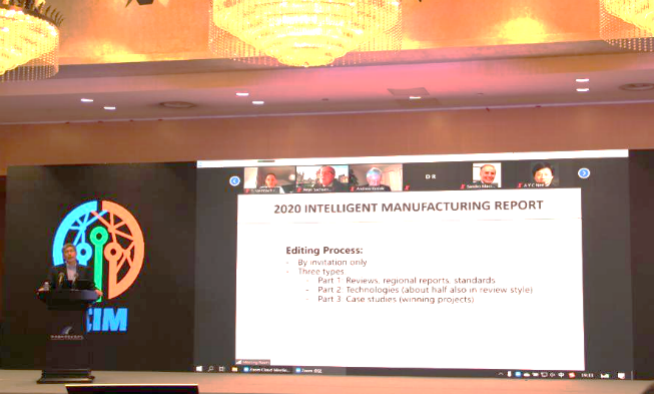
Weiming Shen, Professor of Huazhong University of Science and Technology, Fellowof Engineering Institute of Canada, introducing 2020 Intelligent Manufacturing Report
In the discussion session, experts, scholars and enterprise representatives from different countriessharedtheir opinions on the topic "how can intelligent manufacturing help the manufacturing industry to recover rapidly in the dynamic, changeable global economic situation".
Michael Johnson, CSO of ASME, suggested thatit'simportant for us to have a global perspective. And it’s crucial to develop standards with a platform like ICIM so as to achieve consistency in the topic of intelligent manufacturing. In addition, he said the whole issue with respect to how we improve inside the supply chain is particularly relevant to how we use big data and digital twin. Finally, from an educational point of view, he expressed his great concern about how to equip the next generation of young engineers coming on board withskills to competeas thedigitizationcontinues inthe engineering space.
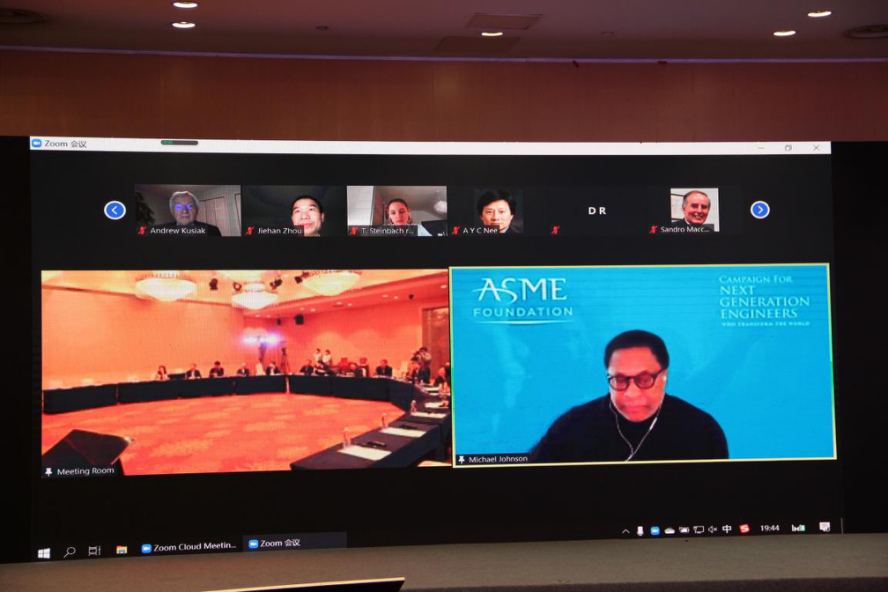
Michael Johnson, CSO of ASME
Andrew Kusiak, Professor of TheUniversity of Iowa,Editor-in-Chief of the Journal of Intelligent Manufacturing shared his opinion that most the industry and academia have always focused on technologies but ignored the manufacturing environments. He pointed out thatindustry and academia has focused onthemanagementmanagement of recovery, which is of vital importance. But most importantly, we should be prepared for future disruptions like Covid-19. And the best way to achieve that is to design the industry. “Acompany is not going to be resilient if the work force is not developed.” Said Prof. Kusiak.
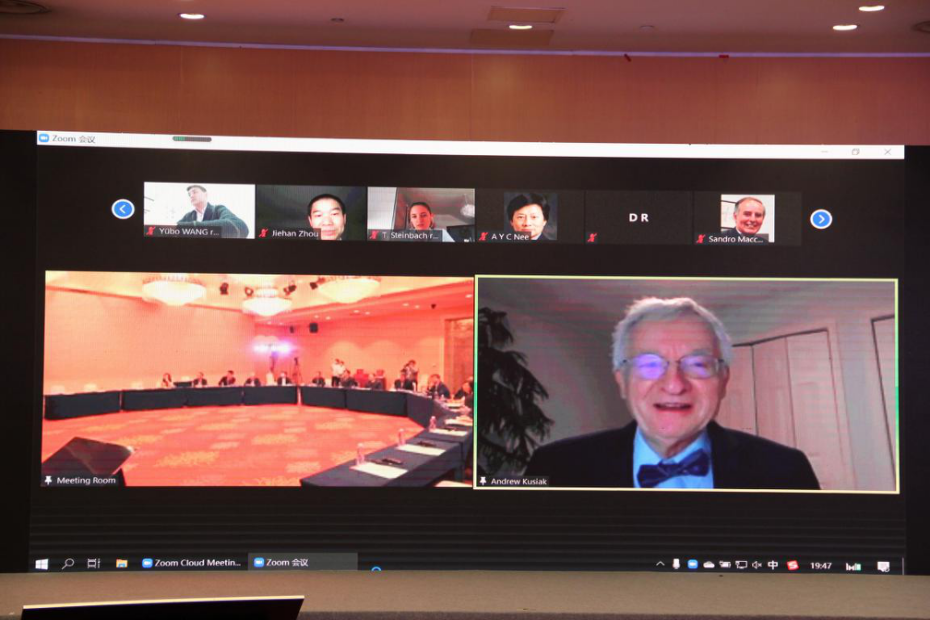
Andrew Kusiak, Professor of TheUniversity of Iowa,Editor-in-Chief of the Journal of Intelligent Manufacturing
Andrew Y C Nee, Professor of National University of Singapore,remarkedthateveryonein the industry uses different platforms, different languages, different tools, different formats, and starts to develop their own systems, without standardization and rationalization, which makes it very difficult to communicate with each other. Therefore, he suggested that ICIM members could work together to standardize and rationalize the systems and create a common, or at least similar platform.
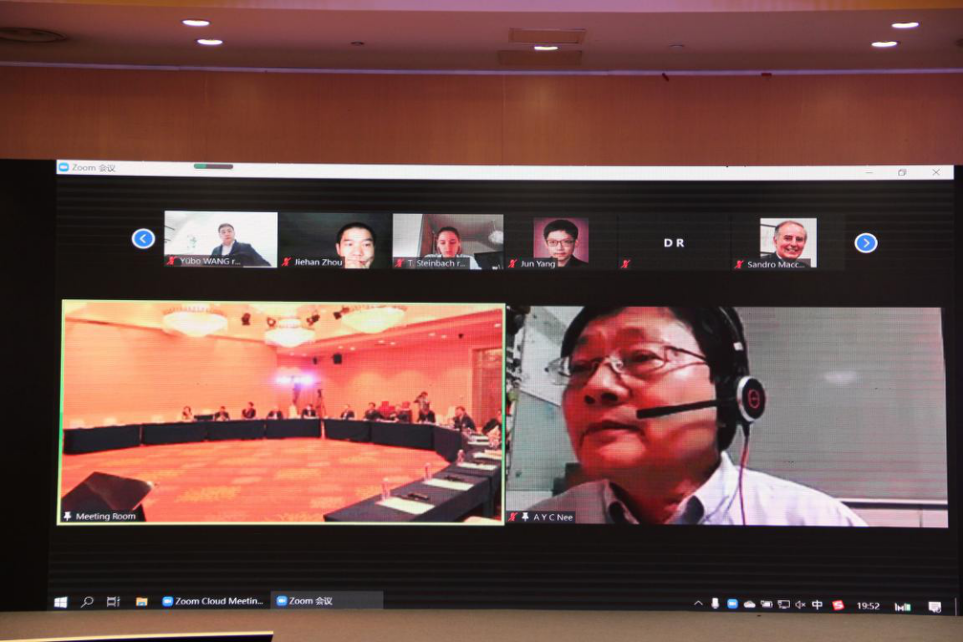
Andrew Y C Nee, Professor of National University of Singapore
Imre Horvath, Professor of Delft University of Technology, Netherlands, pointed out thatinthe face of the pandemic, we can use virtual technologies to realize virtual office and virtual class, but virtual workshop for industrial enterprises is still not available. And small and medium-sized enterprises are facing more difficulties than those large enterprises with more capacities and resources. He commented that we need to adopt different strategies and try to generate an overall solution in preparation for future disasters.

Imre Horvath, Professor of Delft University of Technology, Netherlands
Prof. Peter Sachsenmeie, Fellow of National Academy of Science and Engineering, Germany, remarked that the pandemic has tested the digital supply chains and companies worldwide. And to some extent, the pandemic accelerated the development of intelligence manufacturing unexpectedly, for example, the uptake of AR/VR technologies in maintenance and repair has been unbelievably high. In addition, he shared the measures taken by German enterprises to survive the epidemic.
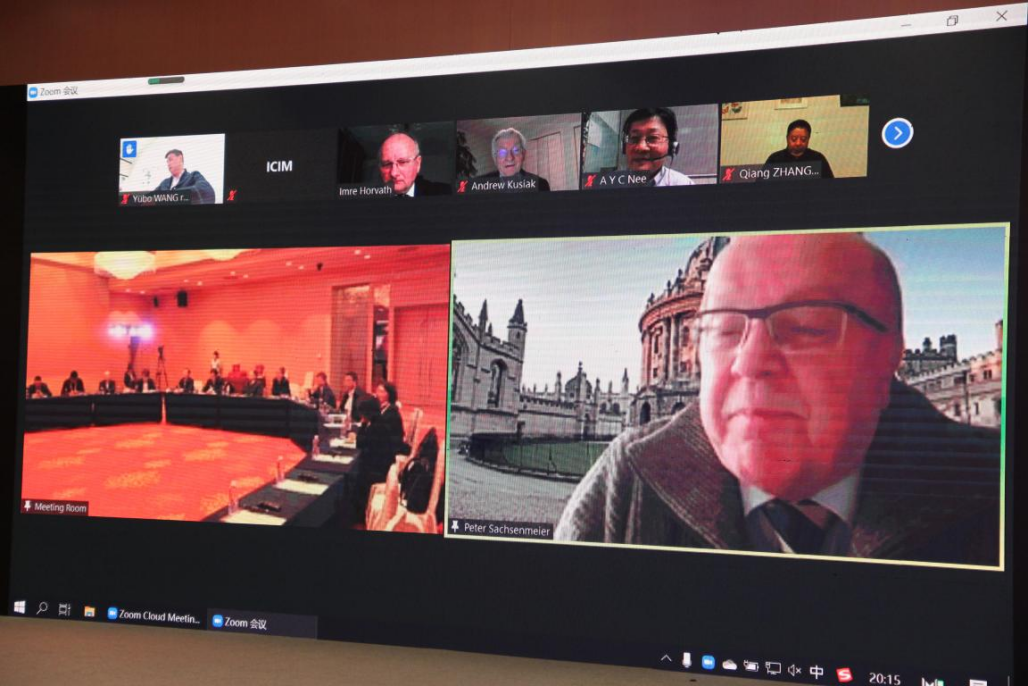
Peter Sachsenmeie, Fellow of National Academy of Science and Engineering
From the perspective of the process industry, Sandro Macchietto, Professor of Imperial College London, proposed that we should rethink the deployment of the manufacturing capacities for better resilience. Also, we should rethink about collaborative environment, which is not just about communication of software but more about communication of production systems in a more fundamental way.
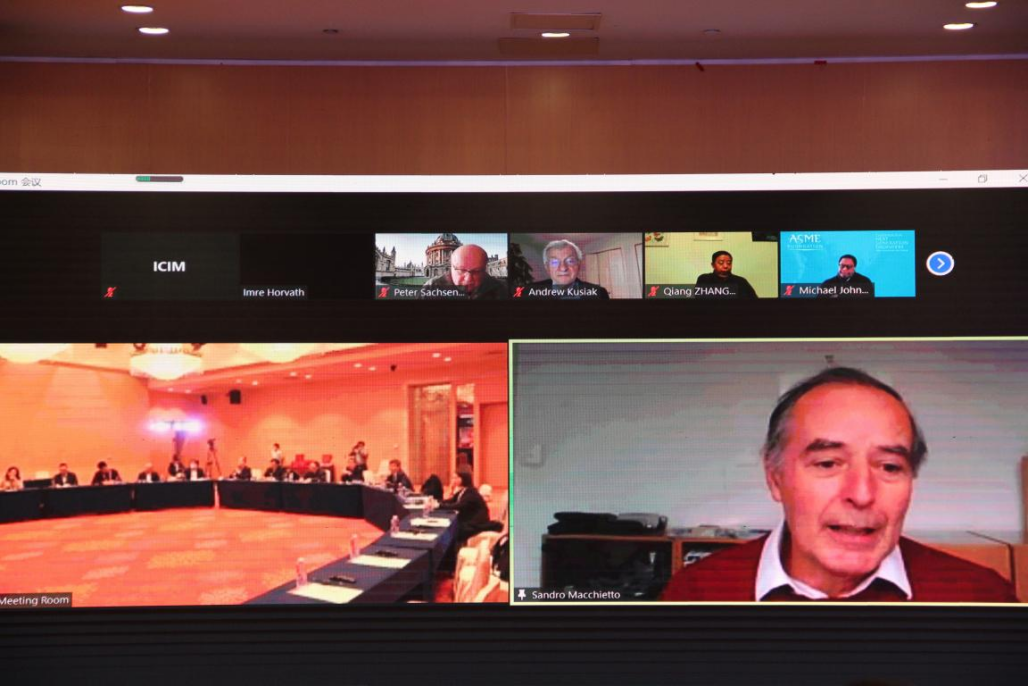
Sandro Macchietto, Professor of Imperial College London
Prof. Yubo Wang shared his views thatthe global epidemic has createdtheneedforsustainable value networks. People have to focus not only the interoperability in the shop floor, but also the interconnection of the real interactions with the virtual interactions. The production or the shop floor level should be linked together with the product development to get a digital twin or digital thread, which helps achieve digital traceability. “The digital twin should be more than just a traditional way of virtual product development. Ithas to control the entire production environment.” He stressed.
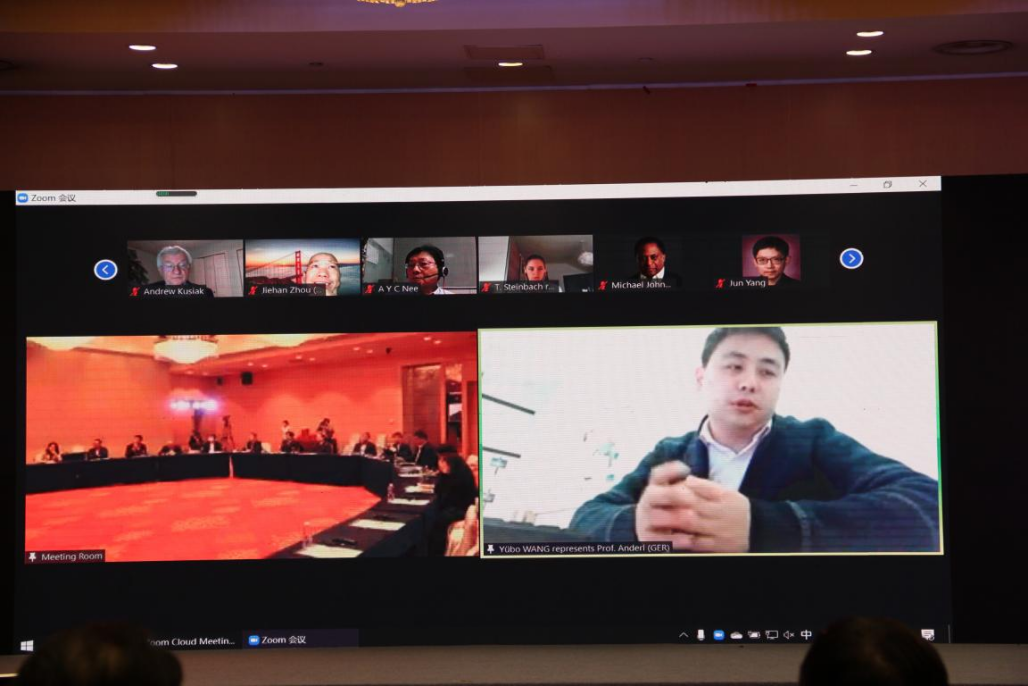
Prof. Yubo Wang
Ping Zhou, Deputy Secretary General of ICIM, said that when it comes to intelligent manufacture, we need to think about not just technologies and tools but also how we can provide intelligence for the workers, the people who are in the front line of manufacturing, and if we are able to provide basic intelligence to make sure that the intelligent manufacturing system can move forward when we are faced up with the pandemic and future challenges. Secretary General Zhou pointed out that next year ICIM will do field research visits to SME to study their strategies.
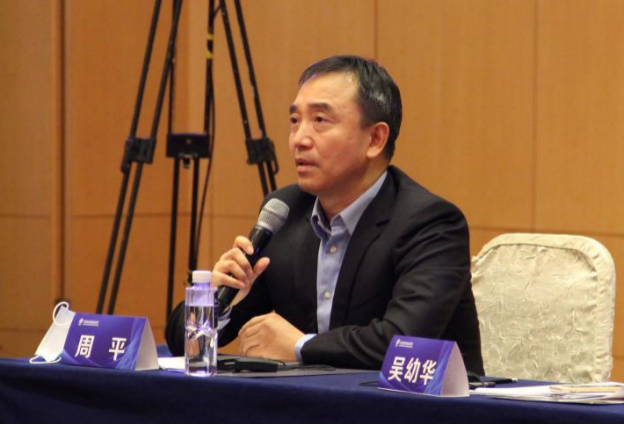
Ping Zhou, Deputy Secretary General of ICIM
S K Ong, Professor of National University of Singapore, raised two question worthy of discussion: With the post-pandemic manufacturing environment, what are the skills required for the next generation of engineers? And in the aspect of intelligent manufacturing, what kind of technologies can we use to enhance female participation at all levels in the manufacturing industry?
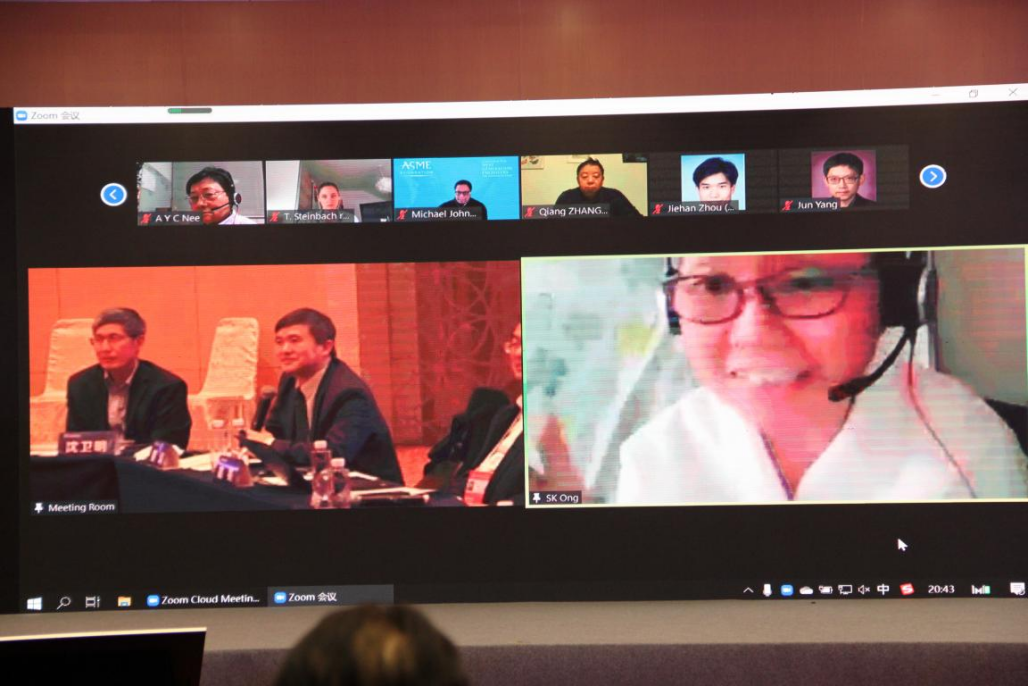
S K Ong,Professor of National University of Singapore
Sergio Cavalieri, Professor of University of Bergamo, Italy, pointed out that researchers have a strong responsibility to prepare future talents for the industry. And as the epidemic has greatly influenced the traditional way of education, he suggested that researchers should form an academic alliance and try tocarryout international team work activities on the same test beds using common educational platforms, in order to make the students aware of the importance of communication with students of other countries.
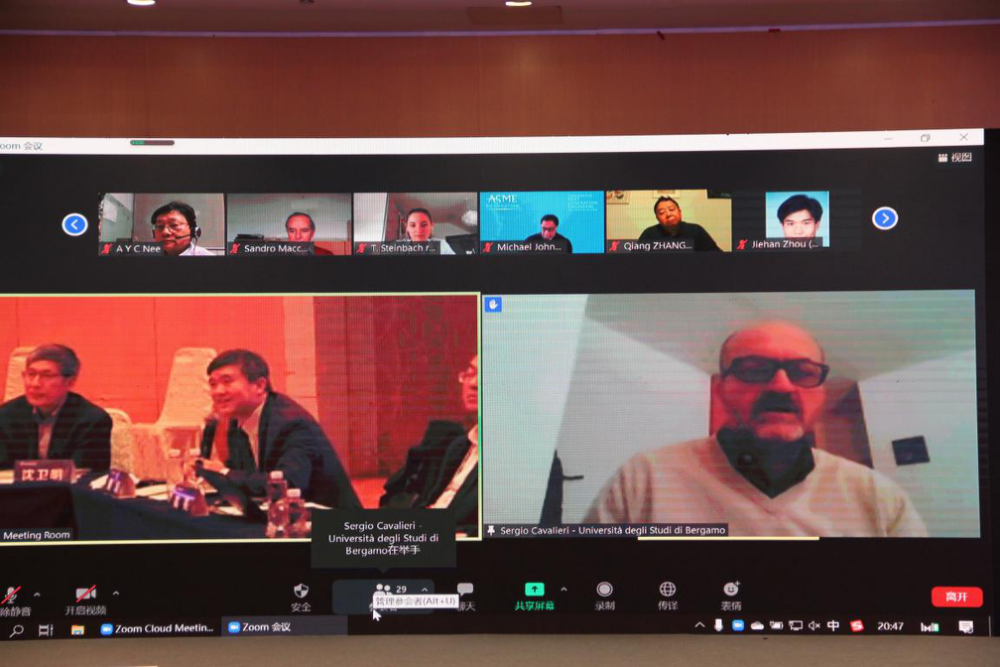
Sergio Cavalieri, Professor of University of Bergamo, Italy
Finally, Prof. Ji Zhou, Co-Chairman of ICIM, gave the closing speech.He made a summary of this annual meeting, and expressed his hope that the global pandemic would end in the near future, so ICIM could hold international conferences around the world and attend industrial exhibitions worldwide.
Prof. Ji Zhou, Co-Chairman of ICIM giving closing remarks








